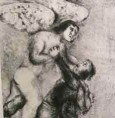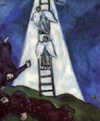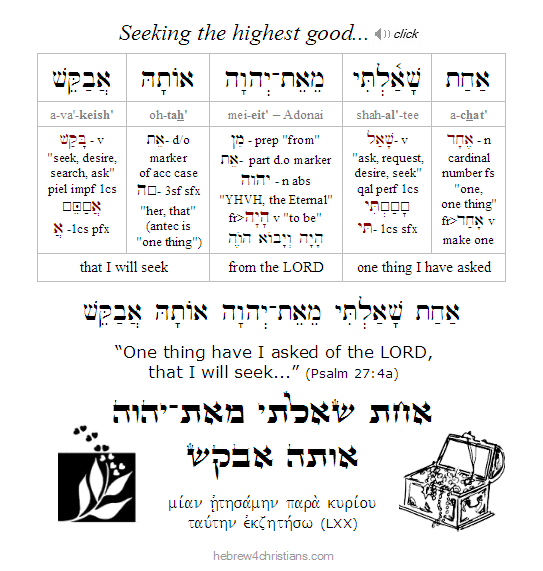|
|
|||||||||||||||||||||
 |
|||||||||||||||||||||
 |
|||||||||||||||||||||
|
|
||||||||||||||||||||||||||||
|
Let's think about the patriarch Jacob (יַעֲקב) for a moment. Recall that the haunting and profound ache in his soul came from the lack of his father's love and appreciation. Tragically, when Jacob finally conspired with his mother's vision for his life by deceiving his father Isaac, he found himself an outcast from the family and was forced to flee the vengeance of his corrupt brother, Esau. Jacob's exile began in heartache and sorrow. And behold, the LORD stood beside him (נִצָּב עָלָיו) and said, "I am the LORD, the God of Abraham your father and the God of Isaac. The land on which you lie I will give to you and to your offspring. Your descendants shall be like the dust of the earth, and you shall spread abroad to the west and to the east and to the north and to the south, and in you and your descendants (seed) shall all the families of the earth be blessed. Behold, I am with you and will keep you wherever you go, and will bring you back to this land. For I will not leave you until I have done what I have promised you" (Gen. 28:13-15). When Jacob awoke, he was overawed. "Surely the LORD is in this place and I knew it not." Shaken by the vision, he said, mah nora ha-makom hazeh - "How awesome is this place!" and added, ein zeh ki im-bet Elohim v'zeh sha'ar ha-shamayim - "This is none other than the house of God, and this is the gate of heaven" (Gen. 28:17). Jacob then made a monument from the stone he had used as a pillow, anointed it with oil, and called the place Bet-El (בֵּית־אֵל) - "the house of God." It is likely that this was the place that Abraham erected an altar to the LORD after he came to the Promised Land (Gen. 12:8). If God will be with me and will keep me in this way that I go, and will give me bread to eat and clothing to wear, so that I come again to my father's house in peace, then the LORD shall be my God, and this stone, which I have set up for a pillar, shall be God's house. And of all that you give me I will give a full tenth to you. (Gen. 28:20-22) Now the immediate question here is how to understand this vow. Was Jacob trying to "make a bargain" with God? Was his vow conditional? Was he in effect saying, "If God takes care of my material well being during this period of exile, and restores me b'shalom (in peace) to my father's house, then I will serve Him? IF God will be with me and will keep me in this way that I go, and will give me bread to eat and clothing to wear, so that I come again to my father's house in peace, and the LORD shall be my God, THEN this stone, which I have set up for a pillar, shall be God's house. And of all that you give me I will give a full tenth to you. (Gen. 28:20-22) In other words, given the context of the situation (i.e., God's promise to multiply his descendants, inherit the land, and so on), Jacob is merely restating God's intent and affirming his faith that God will follow through with His promises. In effect Jacob is saying, "If you will be my God, then I will honor you as such..." If, on the other hand, Jacob is somehow prevented from ever returning to the Promised Land, he would be unable to keep his vow to the LORD. It all depends on the LORD. If God (אֱלהִים) will be with me ... then the LORD (יהוה) shall be my God... In other words, Jacob was saying that if he returned to the Promised Land b'shalom el bet avi, "in peace to my father's house," then he would understand God as the Compassionate One. How so? Because this would represent refuah shlemah - a complete healing - for Jacob. Being restored to the love of his father would demonstrate God's compassion and ultimately give his heart room for true worship of the LORD. Finding the Father's heart is the source for our worship, too.
|
|
Hebrew for Christians |
|||||
|
|||||


